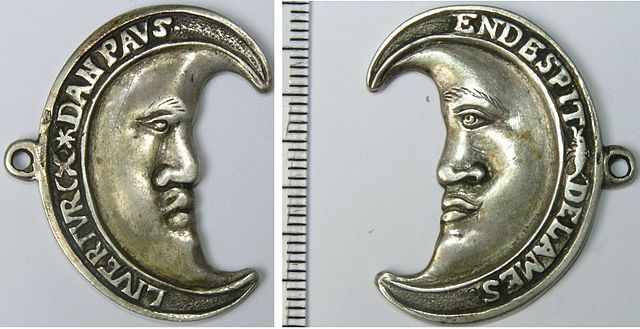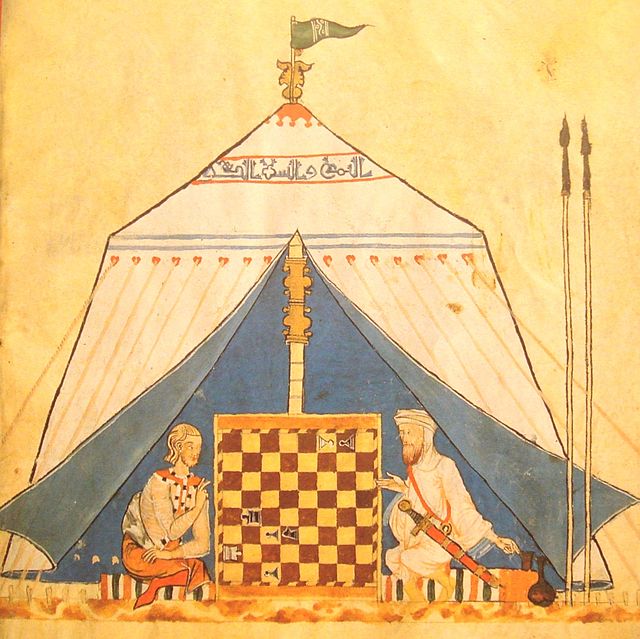Christianity and Islam are the two largest religions in the world, with 2.8 billion and 1.9 billion adherents, respectively. Both religions are considered as Abrahamic, and are monotheistic, originating in the Middle East.
A Dutch crescent-shaped Geuzen medal at the time of the anti-Spanish Dutch Revolt, with the slogan "Liver Turcx dan Paus" ("Rather Turkish than Pope (i.e. Papist)"), 1570.
Dante, a Christian, and Virgil looking at Muhammad who suffers in hell as a schismatic, an illustration of the Divine Comedy by Gustave Doré. During the Middle Ages, Islam was often seen as a Christological heresy and Muhammad as a false prophet.
The Druze Maqam al-Masih in As-Suwayda Governorate.
A Christian and a Muslim playing chess, illustration from the Book of Games of Alfonso X (c. 1285).
People of the Book or Ahl al-kitāb is an Islamic term referring to followers of those religions which Muslims regard as having been guided by previous revelations, generally in the form of a scripture. In the Quran they are identified as the Jews, the Christians, the Sabians, and—according to some interpretations—the Zoroastrians. Starting from the 8th century, some Muslims also recognized other religious groups such as the Samaritans, and even Buddhists, Hindus, and Jains, as People of the Book.
The Ashtiname of Muhammad, a treaty between Muslims and Christians, was purportedly recorded between Muhammad and Saint Catherine's Monastery, which is depicted in this icon.




